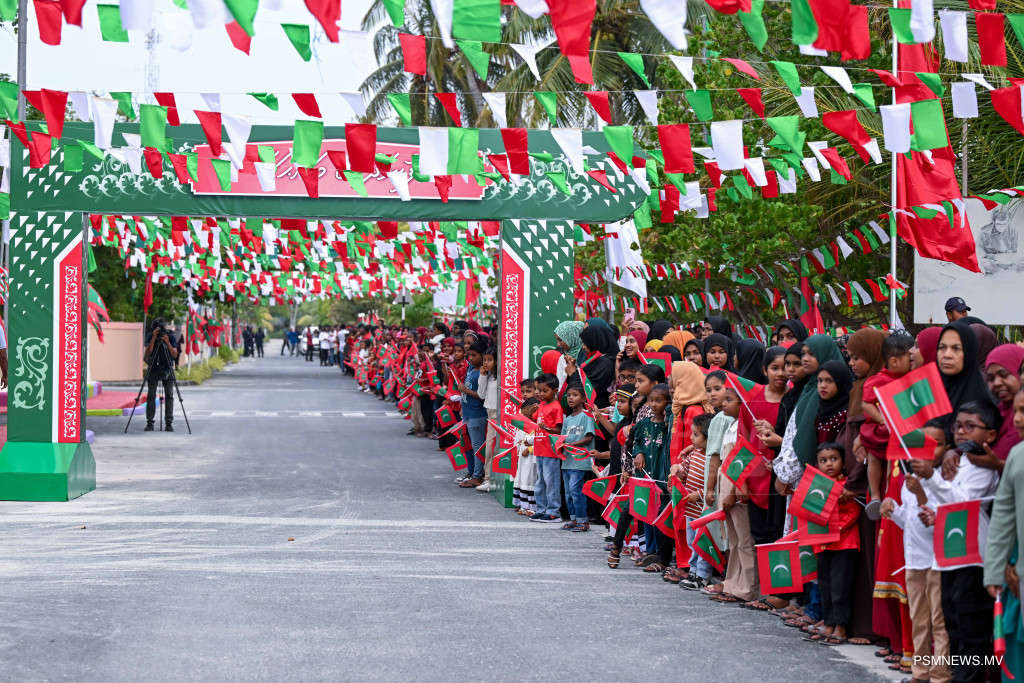
President Dr Mohamed Muizzu has returned to Malé following his visit to 14 inhabited islands of Shaviyani Atoll.
During the tour, the President visited Kanditheemu, Noomaraa, Goidhoo, Feydhoo, Feevah, Bileiyfahi, Foakaidhoo, Milandhoo, Narudhoo, Maroshi, Lhaimagu, Funadhoo, Komandoo and Maaungoodhoo.
He met with island councils, Women’s Development Committees and residents to discuss each community’s development priorities and matters concerning their wellbeing.
The President was accompanied by Cabinet ministers and heads of State-Owned Enterprises, who shared progress updates on ongoing projects and forthcoming initiatives on each island.
Throughout the visit, several new development projects were launched, and agreements for major initiatives were signed. These included programmes under the population consolidation policy, new housing schemes, and projects in education, healthcare, and physical well-being. The President reaffirmed the Government’s strong commitment to advancing sustainable development across all sectors.
As part of the tour, the President officially inaugurated the first ice plant established under his Administration’s efforts to revitalise the fishing industry. He also announced that USD 32.4 million would be allocated each to the health and education sectors in next year’s State budget.
Addressing residents, the President shared updates on the country's financial and economic situation and the progress being made. He pledged to introduce modern digital payment services, such as PayPal, for Maldivians and to create greater opportunities within the creative economy.
He further highlighted that work is underway to resume operations at several stalled waste management centres in the northern islands, as part of a nationwide initiative to strengthen waste management systems.
In Kanditheemu, he inaugurated new Bank of Maldives (BML) ATM services, while water and sewerage system services were also inaugurated in Goidhoo.
This visit is part of President Dr Muizzu’s broader commitment to engage directly with communities across the nation, meeting with atoll, island and city councils to further development and address local needs.
